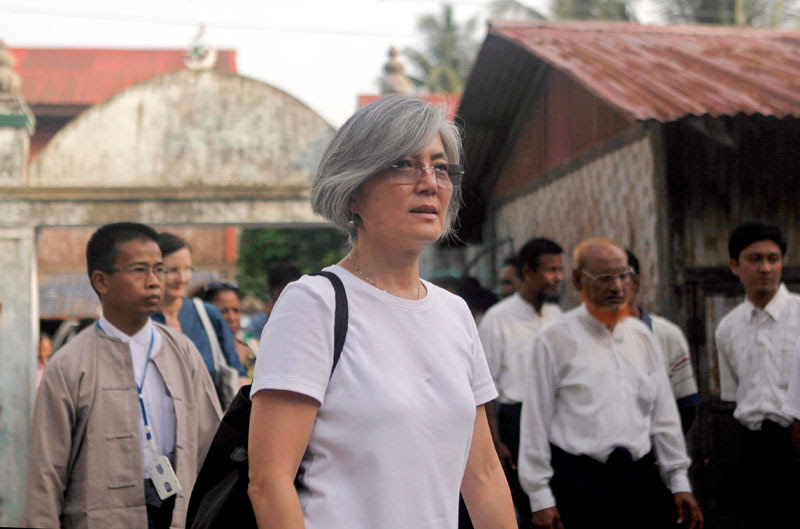The United Nations assistant secretary-general for humanitarian affairs has said the suffering she witnessed last week in camps for internally displaced persons in Rakhine State was the worst she has seen.

"I witnessed a level of human suffering in IDP camps that I have never personally seen before, with men, women and children living in appalling conditions with severe restrictions on their movement, both in camps and isolated villages," Ms Kyung-wha Kang told a news conference at the UN in New York on June 17.
The news conference followed a four-day visit to Myanmar last week by Ms Kang, which also included a trip to Kachin State to visit an IDP camp there and meetings in Nay Pyi Taw with senior government ministers in Nay Pyi Taw.
Ms Kang, who is also the UN's deputy emergency relief coordinator, said many residents of IDP camps in Rakhine had "wholly inadequate" access to basic services, including health, education, water and sanitation.
"Two years into the crisis in Rakhine, hundreds of thousands of people continue to rely on humanitarian aid because they cannot rebuild their lives and livelihoods," she said.
Ms Kang said the employees of humanitarian organisations in Rakhine were working under extremely difficult circumstances. "I was humbled by their commitment to stay and deliver," she said.
"However, unless the Myanmar authorities ensure that the perpertrators of the attacks on UN and NGO premises [in the Rakhine capital, Sittwe] in late March are brought to justice, the safety and security of our staff will continue to be at risk."
During her visit to Kachin State, Ms Kang visited an IDP camp in the state capital, Myitkyina, and met members of Myanmar non-government groups which she said were playing a key role in providing humanitarian aid to IDP camps in areas outside government control.
"Access by international humanitarian organisations is improving through cross-line missions but aid agencies need regular, predictable and sustained access to all IDPs," Ms Kang said.
"The priority for both the Government and the international community must be to improve the lives of the most vulnerable people in the country, regardless of ethnicity, nationality, religion, gender or class," she said.



